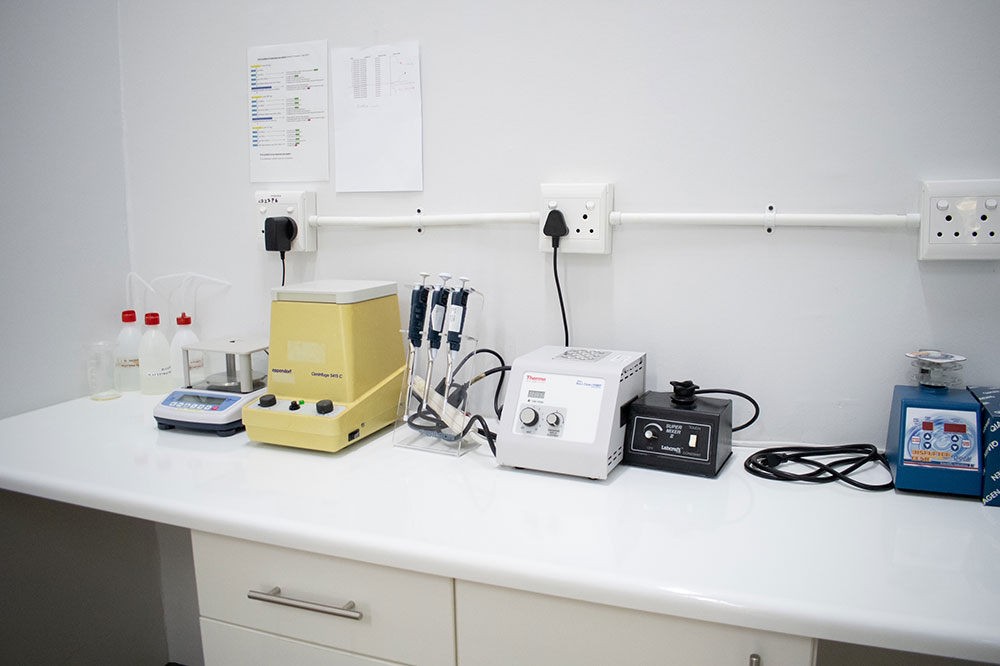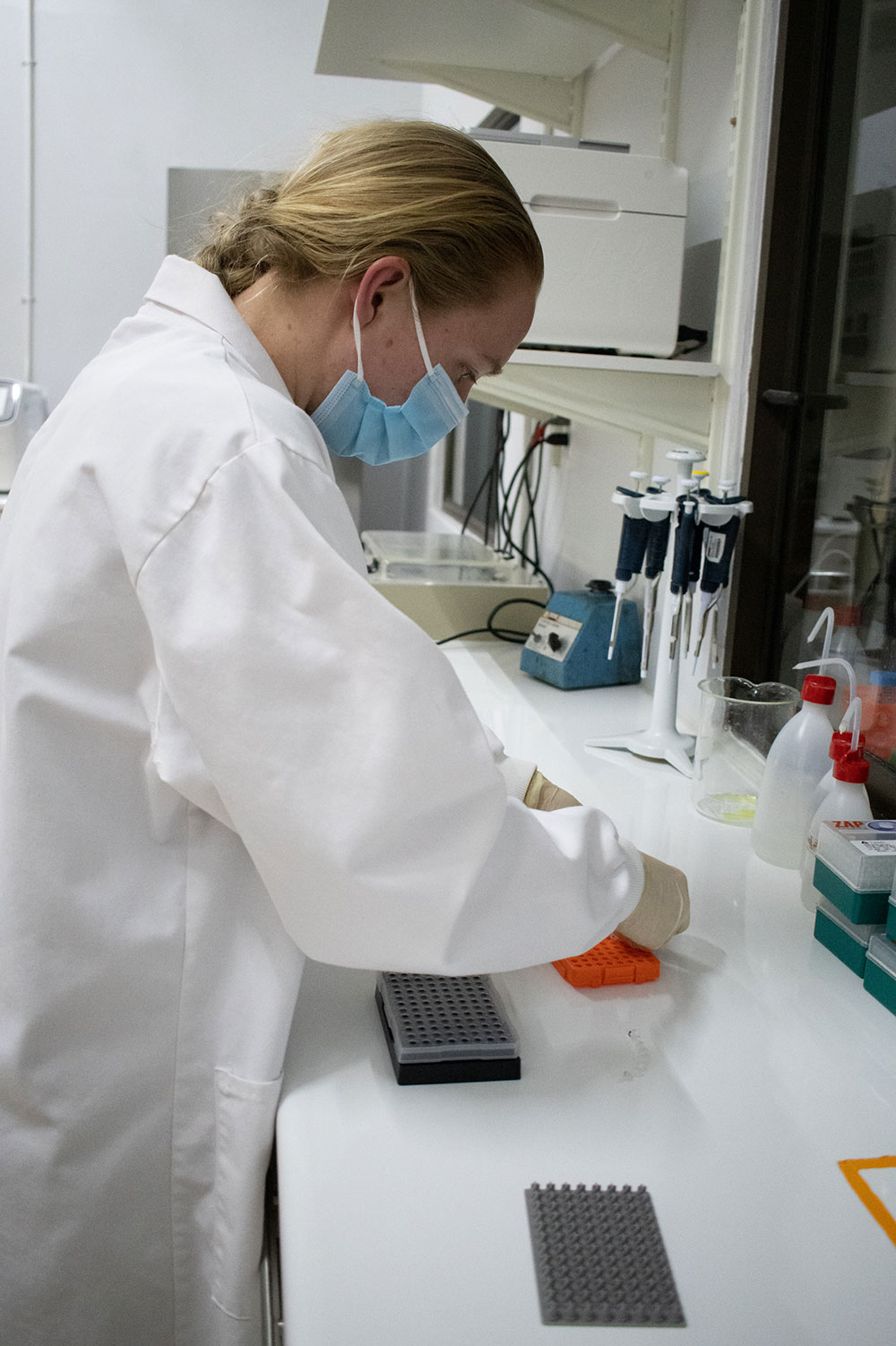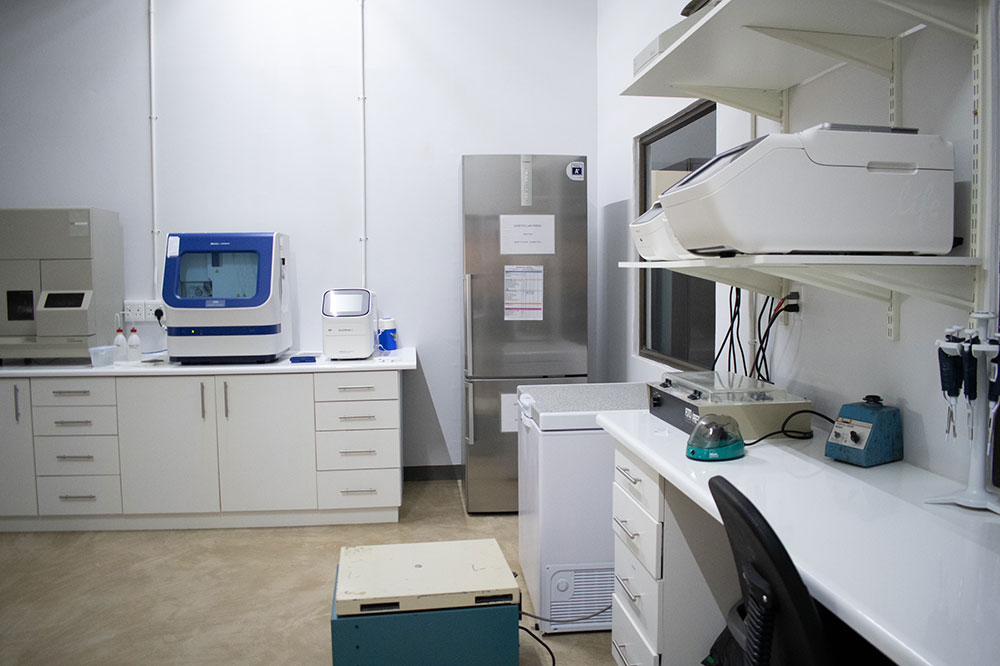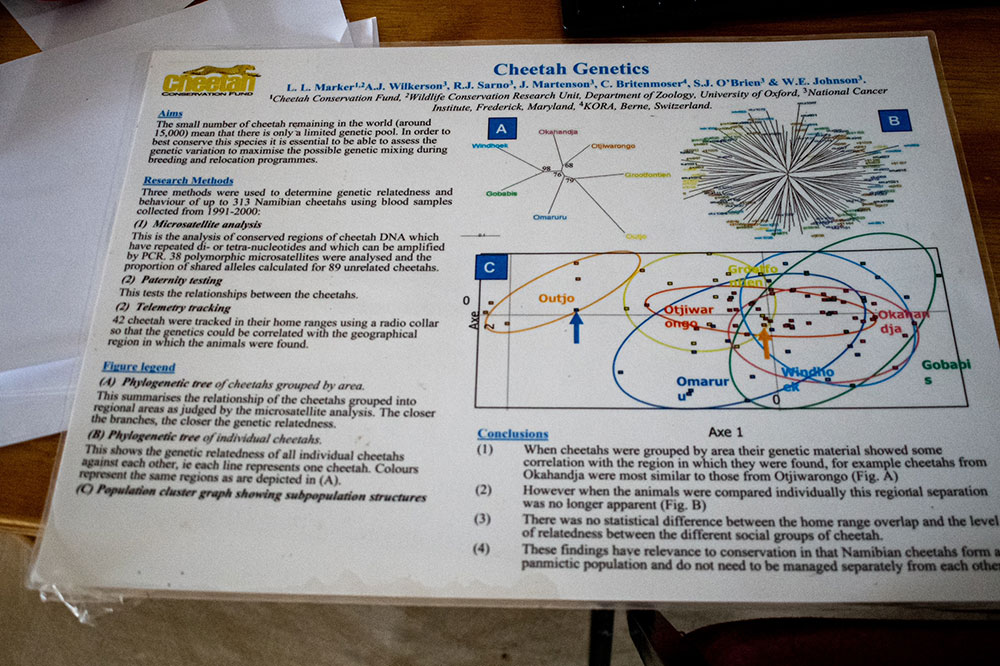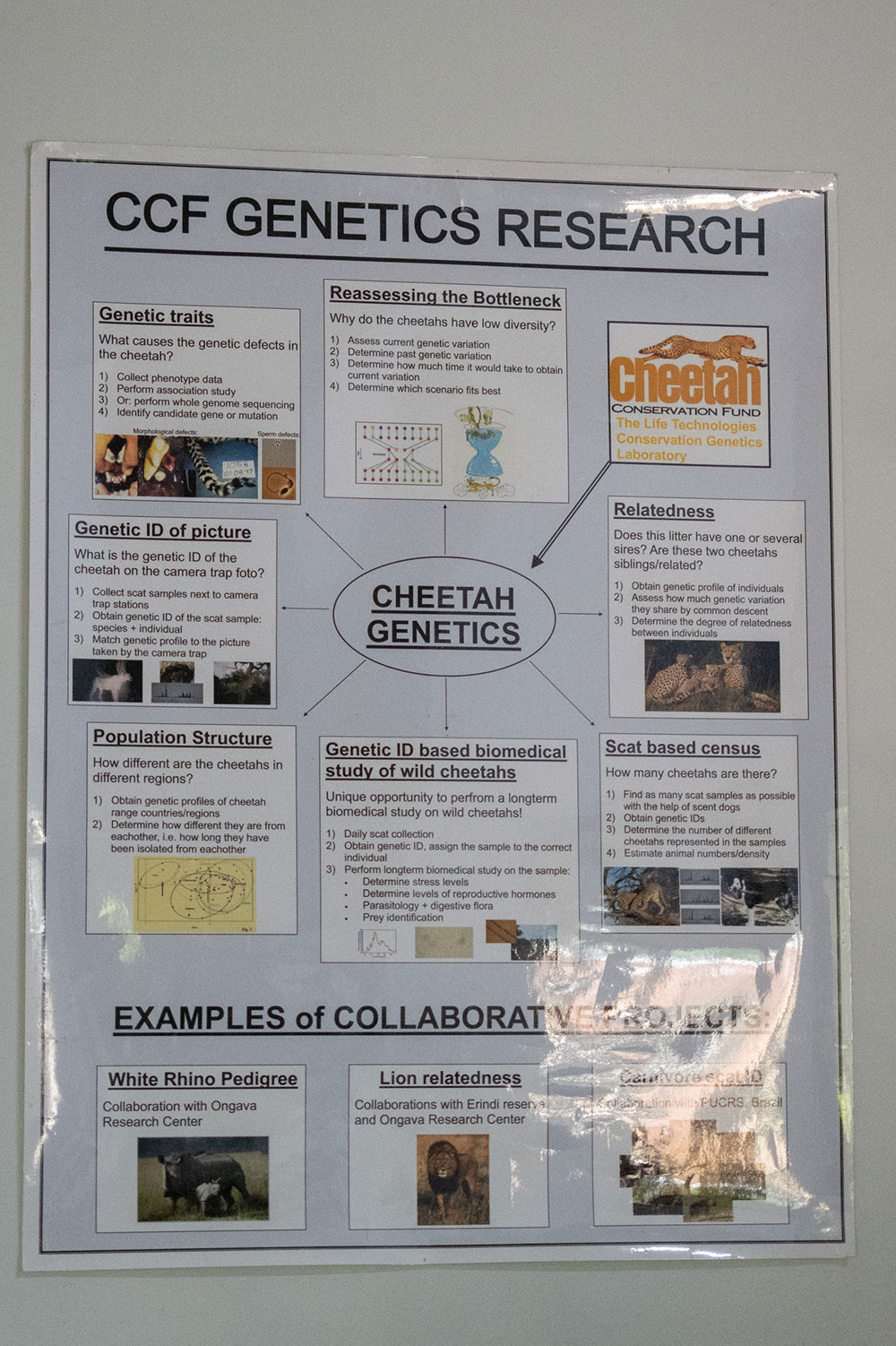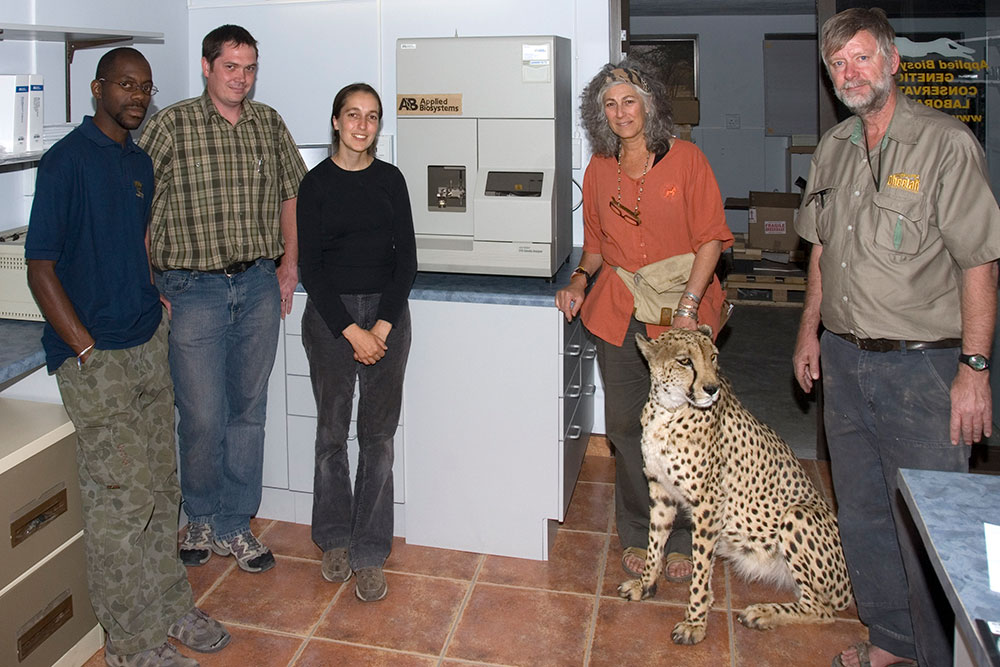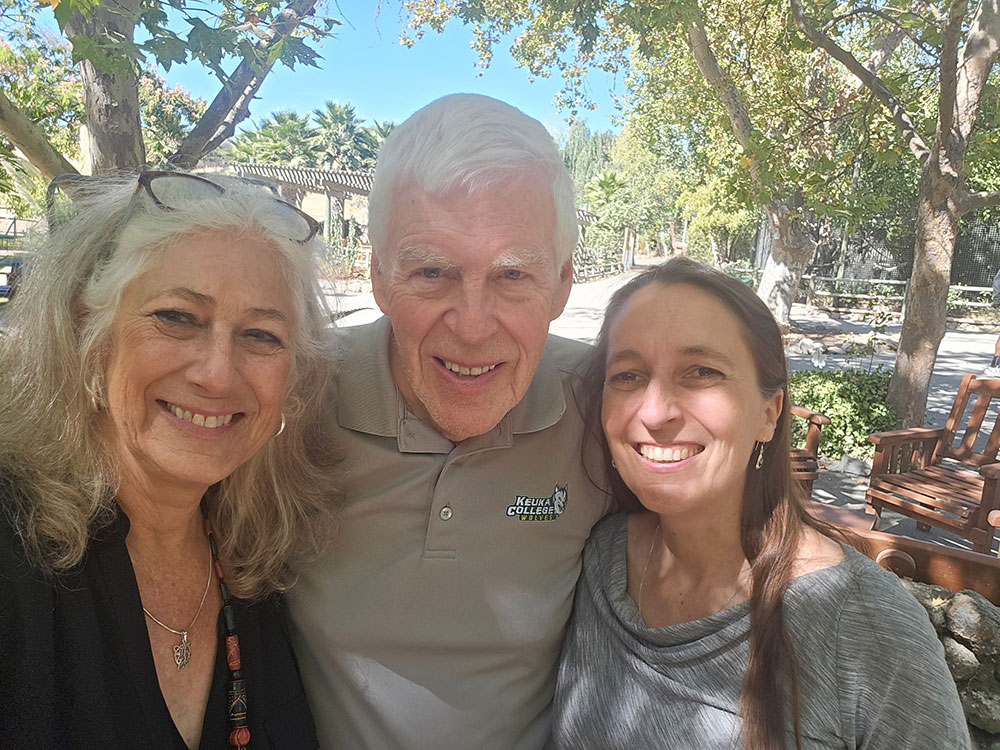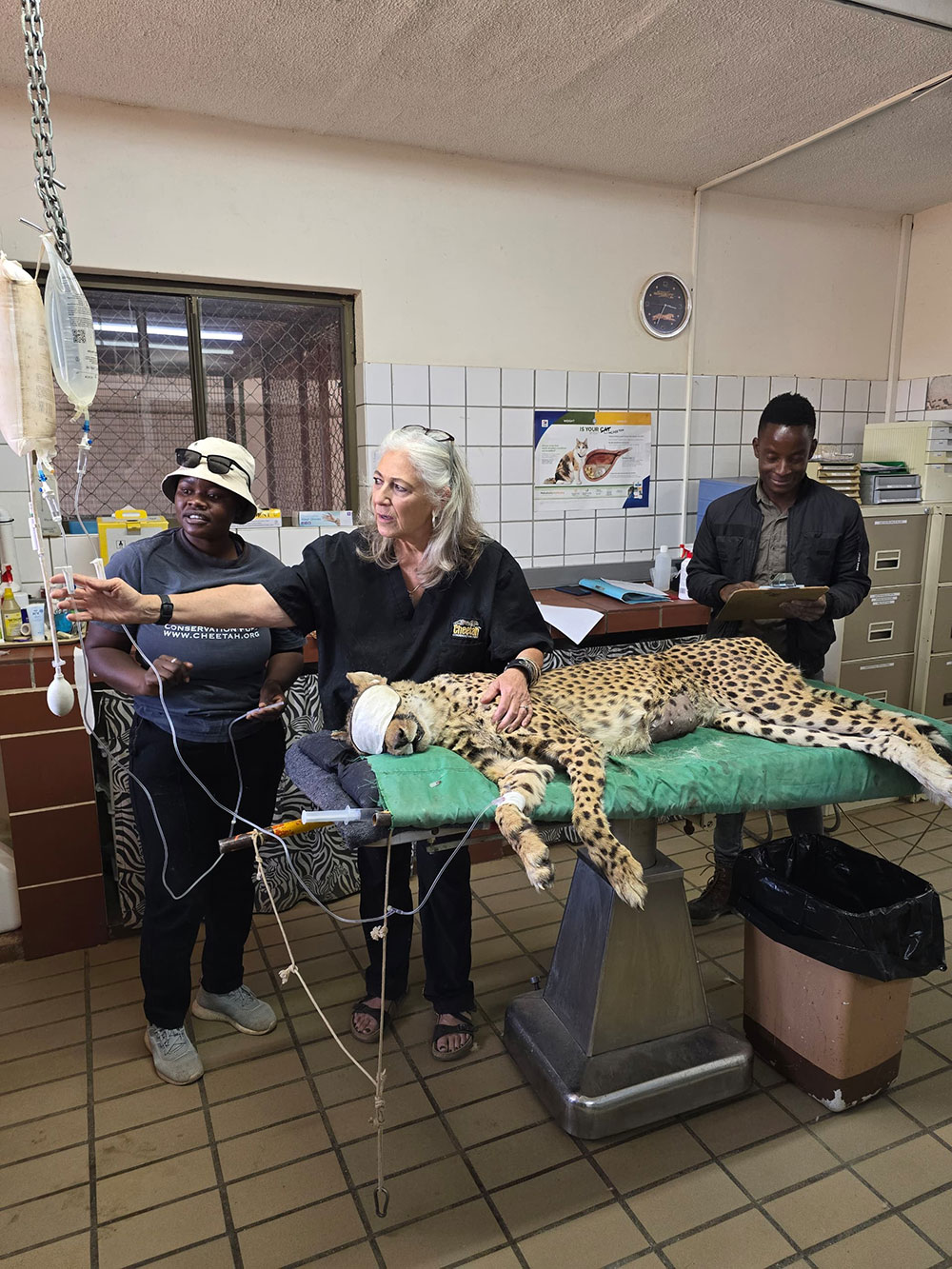Cheetah Conservation Fund (CCF) To Host 2025’s ‘ConGen Global’
-

- by CCF Staff January 5, 2025
FOR IMMEDIATE RELEASE
‘From Parrots of the Caribbean’ to the ‘Tiger Crisis,’ Scientists and Government Officials from Around the Globe Convene in Namibia to Cover The Latest Advances in Endangered Species’ Conservation
Otjiwarongo, Namibia (5 January 2025) The Cheetah Conservation Fund (CCF) will host ‘ConGen Global,’ an international conference covering the most recent advances in conservation genetics. From 5-15 January 2025, the intensive 9-day practicum is dedicated to the application of genomic technologies towards the conservation of biodiversity. CCF’s own genetic research played a key role in up-listing the subspecies of cheetah in the Horn African to ‘Endangered’ status on the IUCN Red List.
Featuring more than 15 internationally renowned scientists, such as Dr. Stephen J. O’Brien, ConGen’s Director and Professor at Nova Southeastern University and Member of the National Academy of Sciences, ConGen’s 2025 edition is sponsored by the American Genetic Association, Giga Science Press, and the Indiana University School of Public Health, and will be hosted at the Cheetah Conservation Fund’s headquarters in Otjiwarongo, Namibia. “We are excited to host this year’s ConGen global training conference and look forward to showing our state-of-the-art genetic laboratory to this international group of scientists,” says CCF Founder Dr, Laurie Marker.
Through a combination of lectures, discussions, and hands-on training, participants will learn the latest methods, interpretation, and applications of molecular genetic analyses for the conservation of endangered species. The prestigious faculty – some of the world’s top scientists – will interact with
international student participants, the world’s future conservation scientists.
ConGen 2025 will feature several high profile Namibians, Hon. Heather Sibungo, the Deputy Minister of the Namibian Ministry of Environment, Forestry and Tourism will open the event. The host committee is led by Dr. Anne Schmidt Kuentzel, CCF’s Director of Animal Health and Research, as well as Dr. Laurie Marker, CCF’s Founder and Executive Director.
Since 1996, ConGen has been taught by preeminent genomics and conservation science experts who’ve developed and applied a multi-disciplinary approach, including scientists from across academia, government, and NGOs studying the genetics of our world’s endangered species. These global conservation leaders will share their seminal research as well as personal stories, and interact with students representing more than 20 countries, including: Australia, Austria, Brazil, China, Colombia, India, Kenya, Namibia, Norway, Pakistan, South Africa, Switzerland, Ukraine, UK, U.S. and more. Each evening will feature a keynote-style lecture by guest faculty on their research advances and interpretations in conservation biology and genomics. Evening keynote speaker lectures are open to the public.
According to Dr. O’Brien, ConGen’s Director, “The annual training workshop entitled “Recent Advances in Conservation Genetics” was first conceived in the summer of 1996 and has continued for nearly 30 years in remote world locations, relevant to species conservation. We began the course to help fulfill the desire and commitment of young genetics scientists with hopes of contributing to the conservation of endangered species through state-of-the-art scientific advances.”
ConGen Global 2025 Samples topics:
- “A Guide to Publishing Ethics: From Mistakes to Misrepresentation to Fraud”
- “Functional Genomics of Whole Genome Sequences”
- “How genomics informs the conservation status and management of wolves in Asia”
- “The Earth BioGenome Project: An Enabler of the Coming Revolution in Conservation Genetics”
- “The Cheetah Restoration Project”
- “History of Domestications: The Lever That Founded All Civilizations”
- “Global Invertebrate Genome Alliance – A Genomic Perspective for Marine Invertebrate Species”
- “The world’s tiger conservation crisis: a genomics perspective”
- “Ecology of Southern African Cheetahs”
- “DNA individualization Forensics of Rhinos of Southern Africa”
- “Continuous Gapless Genome Assemblies with Intercross Species Hybrids”
- “Non-invasive Genetics and Field Applications”
- “Parrots of The Caribbean”
- “The Natural History of the Mammalian Radiations”
- “Management of Black and White Rhinoceros Populations at the Ongava Game Reserve Using Complementary Genetic and Observational Monitoring Tools”
- “Policy for Sample/DNA Transport – Overview Then and Now”
- “Saving giraffe: using science and management to conserve all four species across Africa”
- “Zoobiquity and Infectious Disease Outbreaks”
- “From Sloths to Sea Turtles: Genomic Insights into Conservation Challenges and Evolutionary History”
- “Decoding Survival: Comparative and Population Genomics Informs the Conservation of the Endangered Black-footed Ferret”
Tutorial Teaching Faculty
- Larissa Souza Arantes, Ph.D., Berlin Center for Genomics in Biodiversity Research, Berlin, Germany
- Henrique Figueiró, Ph.D., Research Scientist, Vale Institute of Technology – Sustainable Development, Belém, Brazil
- Lauren Hennelly, Ph.D., Center for Evolutionary Hologenomics, University of Copenhagen, Denmark Guest lecturers Agostinho Antunes, Ph.D., Professor, Interdisciplinary Center for Marine and Environmental Research (CIMAR), University of Porto, Porto, Portugal
- Peter Dratch, Ph.D., Senior Biologist, U.S. Fish & Wildlife Service, Fort Collins, Colorado, USA
- Carlos Driscoll, D.Phil., Galton Corp., Frederick, Maryland, USA
Guest Lecturers
- Julian Fennessy, Ph.D., Co-founder and Director of Conservation, Giraffe Conservation Foundation, Windhoek, Namibia
- Abigail Guerier, M.Sc., Executive Manager, Rhino Conservation, Ongava Game Reserve, Namibia
- Rainer Hassel, D.V.M., Head of Veterinary Academic Hospital, University of Namibia, Windhoek,
- Namibia Yadvendradev Jhala, Ph.D., Dean (retired), Wildlife Institute of India, Dehradun, Uttarakhand, India
- Jose (Joe) Lopez, Ph.D., Professor, Nova Southeastern University, Ft. Lauderdale, Florida, USA
- Shu-Jin Luo, Ph.D., Principal Investigator, School of Life Sciences, Peking University Beijing, China
- Audrey Majeske, Ph.D., Professor, Oakland University, Rochester, Michigan, USA and University of Puerto
- Rico-Mayaguez, Mayaguez, Puerto Rico Justin Merry, Ph.D., Associate Professor of Biology, Chair of Biology, Department of Biology, Saint Francis University, Loretto, Pennsylvania, USA
- William Murphy, Ph.D., Professor, Texas A&M University, College Station, Texas, USA
- Matti Nghikembua, Ph.D., Chief Ecologist and Forest Steward, Cheetah Conservation Fund, Otjiwarongo, Namibia
- Alfred Roca, Ph.D., Professor, University of Illinois at Urbana-Champaign, UrbanaChampaign, Illinois, USA Mamadi
- Theresa Sethusa, Ph.D., Director of Research and Scientific Services, South African National Biodiversity Institute, Pretoria, South Africa
About the Cheetah Conservation Fund:
Founded by Dr. Laurie Marker in 1990, the Cheetah Conservation Fund (CCF) is the global leader in cheetah research and conservation, dedicated to ensuring the survival of cheetahs in the wild. CCF’s research focuses on the biology, ecology, and genetics of the world’s cheetahs. Its findings form the basis for CCF’s education and conservation programs. CCF employs integrated conservation programs addressing habitat restoration, human-wildlife conflict mitigation, and community education. Headquartered in Namibia with a field base in Somaliland, signature programs include the Livestock Guarding Dog Program, which places specialized dogs with farmers to protect livestock from predators, and habitat restoration initiatives that have transformed thousands of acres of farmland into thriving ecosystems.
To address the challenge of effectively monitoring the wild cheetah population, CCF built and maintains the only fully capable conservation genetics laboratory at an in-situ conservation site in Africa. Under the direction of Dr. Schmidt-Küntzel, a PhD. Conservation Geneticist and DVM, and CCF’s Director for Animal Health and Research. The Life Technologies Conservation Genetics Laboratory is a state-of-the-art facility that produces, analyzes, and provides results in-house. The laboratory aims to address research questions involving cheetah gene flow and geographical patterns of genetic variation, as well as adaptive questions in relation to the cheetah’s behavioral ecology in specific habitats. CCF has also extracted and genotyped samples from all confiscated cheetahs in the Horn of Africa to detect the animals’ origin, providing the date to uplisting of this subspecies to Endangered. Open to researchers from other organizations, the lab benefits not only the cheetah but many other species, and it plays a key role in training the next generation of conservation geneticists throughout Africa.
Media Contact: Elissa Buchter, [email protected], Phone/WhatsApp +13109634808
Related Reading

